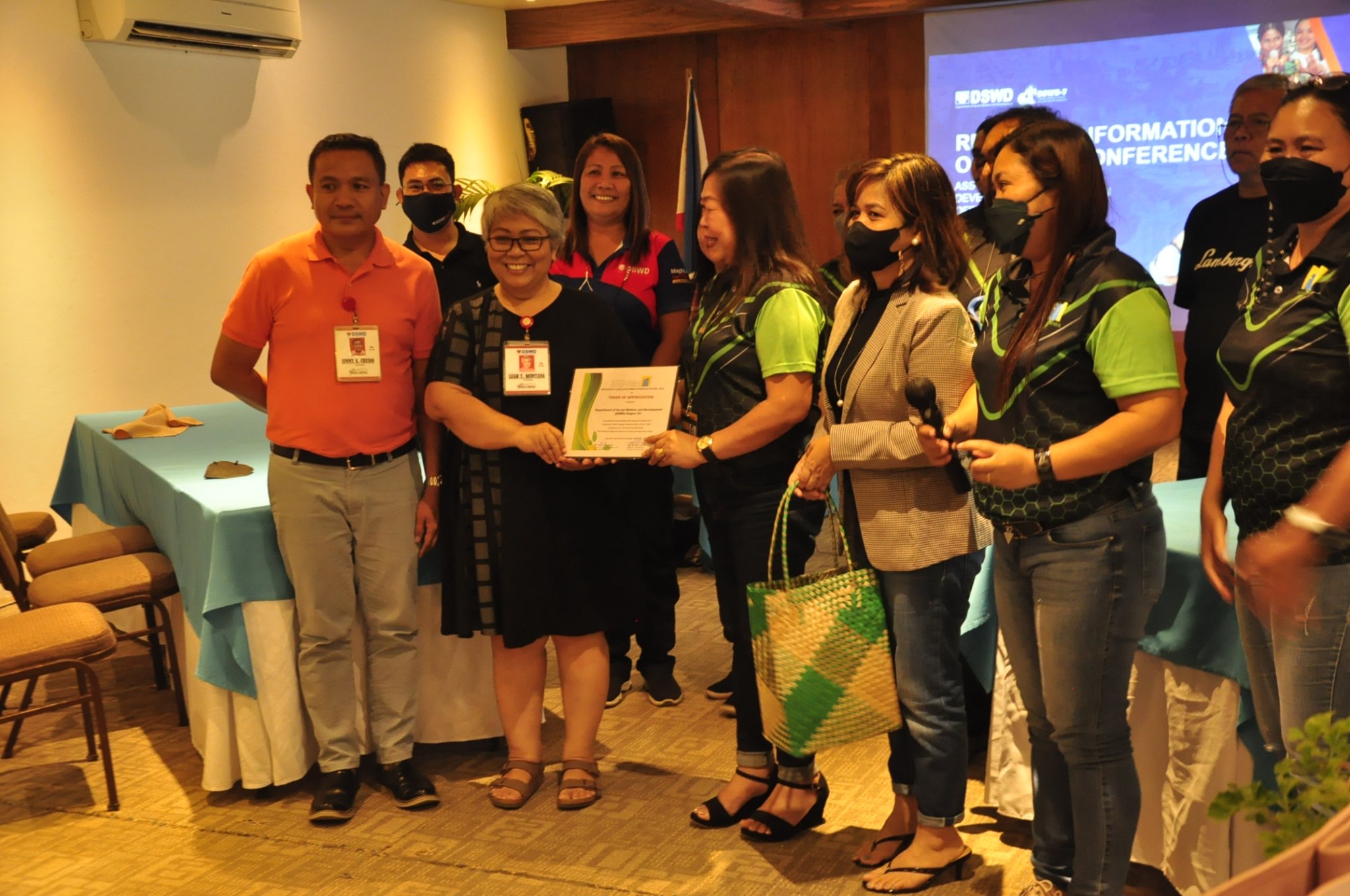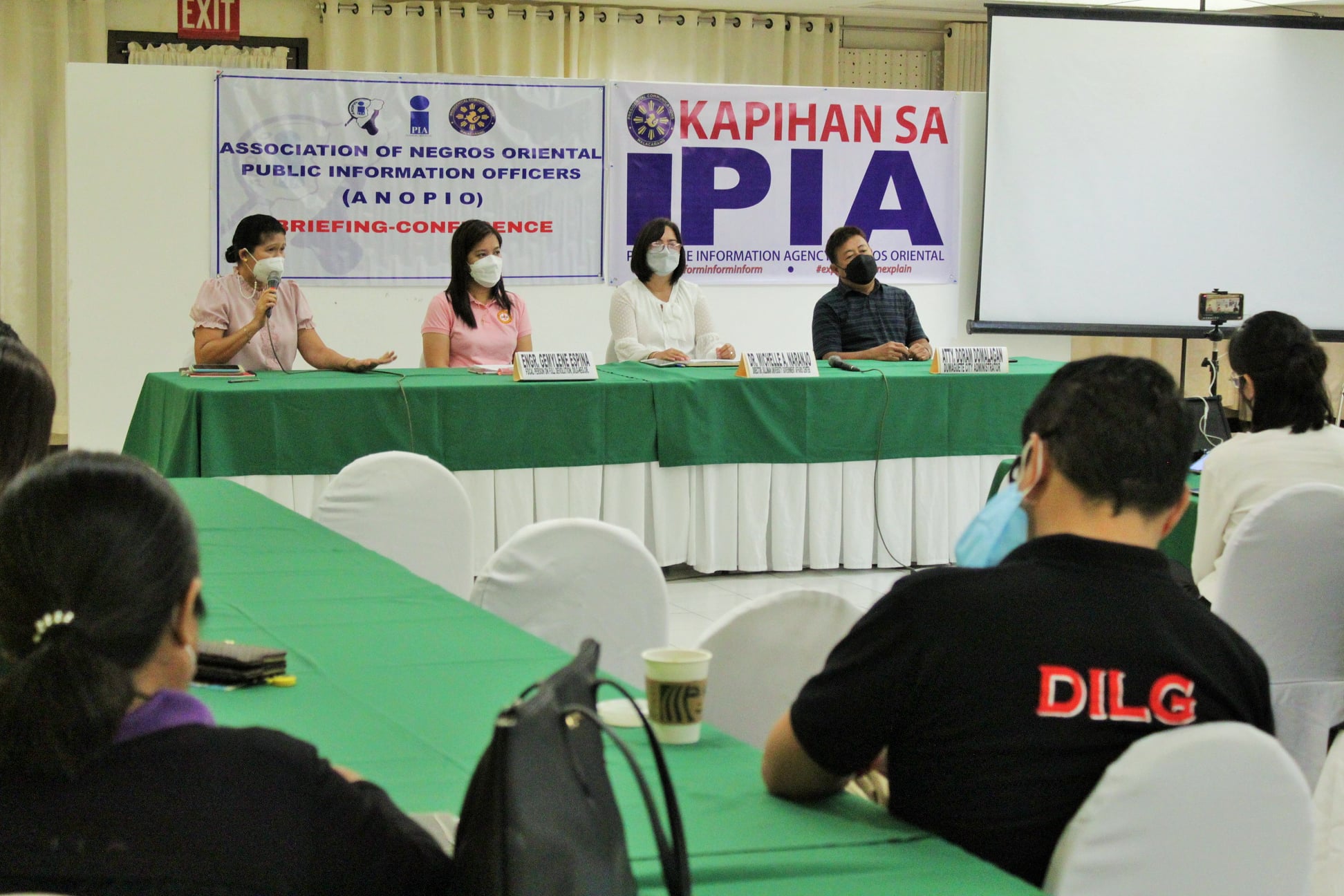DUMAGUETE CITY, Negros Oriental, June 23 (PIA) -- The Department of Social Welfare and Development (DSWD) Region 7 is now preparing the Local Social Welfare and Development Offices (LSWDOs) in local government units (LGUs) in the region for the full devolution of essential services.
This is in compliance to the Supreme Court’s Ruling on the Mandanas-Garcia Petition.
This was disclosed by DSWD7 Assistant Regional Director for Operations Shalaine Marie Lucero in a briefing-conference with the members of the Association of Negros Oriental Public Information Officers (ANOPIO) held June 16 where she discussed the agency’s strategy in decentralizing essential services to LGUs.
The Mandanas Ruling directs the increase of National Tax Allotment (NTA) share among LGUs vis-à-vis the transfer or devolution of essential services from national government agencies to LGUs.
Lucero said the overall strategy for the transition which they are implementing this year is focused on strengthening the foundational components of the devolution and capacity-building to ensure the readiness of LGUs.
She said there are eight programs and services under DSWD that will be transferred to LGUs, namely: supplemental feeding program, assistance to Persons with Disabilities, assistance to senior citizens, programs for street children, Assistance to Individuals in Crisis Situations (AICS), assistance to victims of trafficking, the Sustainable Livelihood Program (SLP), and the Kapit-Bisig Laban sa Kahirapan-Comprehensive and Integrated Delivery of Social Services (KALAHI-CIDSS).
The year 2022 is a transition period for DSWD7.
“This provides us sufficient time to put in place the mechanisms, policies, and other processes, and time for the LGUs. Mao nay siguraduhon ni DSWD. Ang goal is smooth transition. Dili outright ibalhin tanan kay ma-overwhelmed ang LGU (The goal is to have a smooth transition. DSWD will make sure of this. We won’t transfer the services outright to the LGUs because they might be overwhelmed),” Lucero said.
For this year, DSWD7 will scale down its supplemental feeding program, which means DSWD will still take the lead in the implementation of the program in LGUs under the 4th, 5th, and 6th class categories in partnership with their respective LSWDOs.
Meanwhile, LSWDOs from the 1st, 2nd, and 3rd class LGUs including Highly Urbanized Cities will take charge of the supplemental feeding program this year.
DSWD will also begin devolving its services for the elderly to the National Commission for Senior Citizens.
By 2023, DSWD7 will phase out its supplemental feeding program, which means all LGUs shall take full responsibility in implementing the program while the agency will scale down its programs for trafficked persons and the AICS, a form of financial assistance given to persons who are in great need of medical funding, burial, food, and other cases of emergencies or crises.
In 2024, DSWD will phase out its KALAHI-CIDSS and SLP.
However, Lucero said there are discussions which moved the scaling down of AICs until 2024.
She added there could be changes in the devolution process as it would depend on the readiness of LGUs to take on the devolved program.
The DSWD official added that the change of administration would also be challenge to the department and it is important that newly-elected officials and other stakeholders are oriented on this endeavor.
Once services would be completely transferred to LGUs, the department will focus on policy development, standard setting, providing technical assistance, capacity-building, and monitoring and evaluation.
Lucero recommended for LGUs to adhere with the standards of service delivery, ensure convergence of sectoral priorities at the local level, consider hiring displaced personnel from DSWD and other national agencies, and maintain partnerships with the department. (RAL/PIA7 Negros Oriental)




